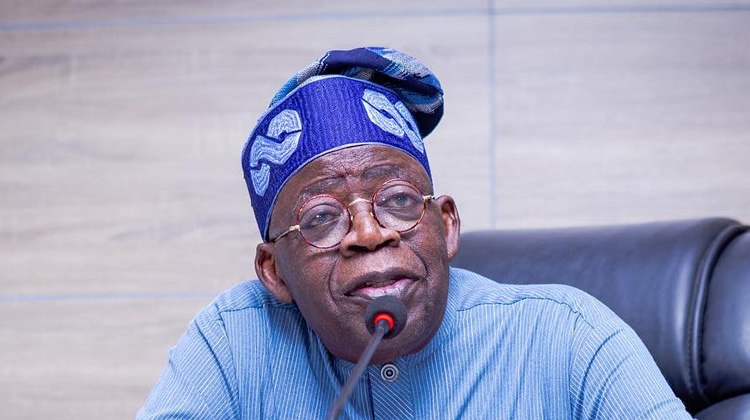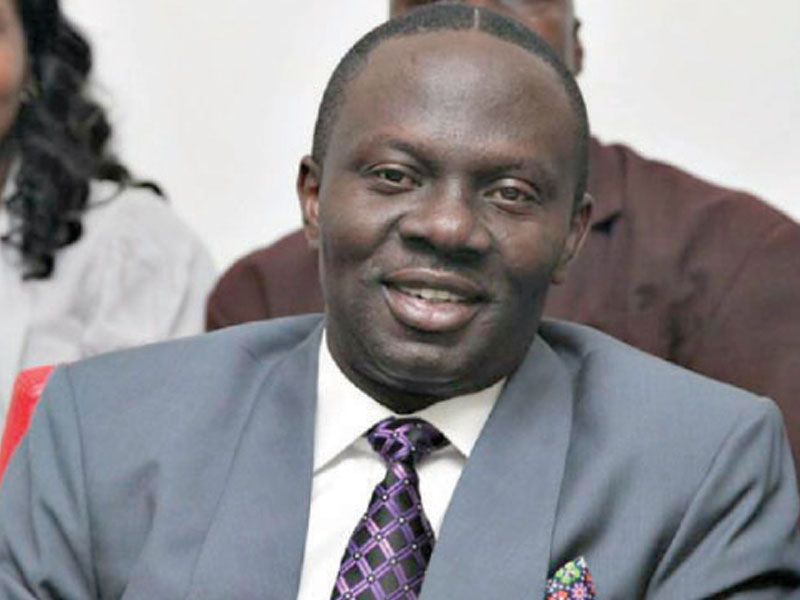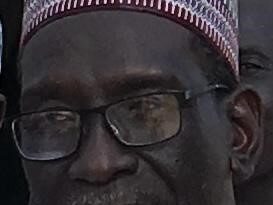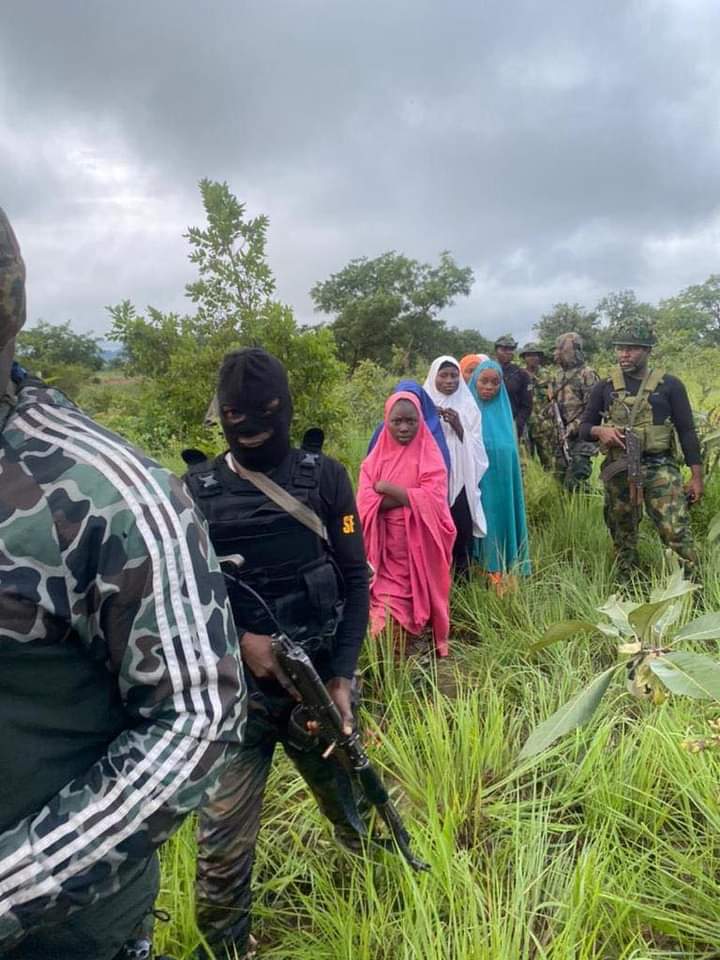Nigerian Democracy and the Challenge of Governance
Salihu Moh. Lukman
All Progressives Congress
North-West Zonal Office
Kaduna
The APC Manifesto identified that ‘the challenge facing us as Nigerians is whether we have the will and the courage to unite to radically reform, modenise and move our nation forward – not looking back to the failed policies and practices of the past. It is no longer a question of choice but of will and courage.’ In his campaign document, ‘Renewed Hope 2023 – Action Plan for Better Nigeria’, President Asiwaju Bola Ahmed Tinubu, took this forward when he identified that ‘the structural model upon which our national economy has always been based needs major reform. Our economy is unhelpfully designed to export raw materials and import increasingly expensive finished products. Crude oil still provides most of our foreign exchange and represents the primary source of Federal Government revenues. Over the long-term, the revenues from these natural resources export will prove insufficient to meet rising costs of imports let alone support the fiscal obligations demanded by modern democratic governance.’
More than anything, the issue of fuel subsidy tests the commitment of President Tinubu and the APC in terms of whether new initiatives will be introduced to courageously unite Nigerians ‘to radically reform, modenise and move our nation forward’. It is about whether we want to continue to spend about 30% of our total revenue as subsidy for importation of fuel. For instance, under the 2023 Federal Government budget, for the first six months, January – June, N3.36 trillion was provided. Between 2017 and 2022, more than N5 trillion was expended on subsidy for the importation of fuel. In 2017, it cost the country N144.5 billion. The cost increased to N722.3 billion in 2018, N551.2 billion in 2019, N102 billion in 2020, N1,780 billion in 2021 and N2,042 billion in 2022. It is projected that between 2017 and June 2023, Nigeria would have expended 26.06% of its revenue on fuel subsidy payment. Nigeria’s 2023 budget is N21.83 trillion. This means that oil subsidy for the first six months already accounted for about 15% of the Federal Government’s budget and if it is to continue, it will account for nothing less than 30% of the Federal Government’s budget by December 2023.
The reality therefore is that the challenge of managing the astronomical cost of fuel subsidy payment is the first test of whether President Tinubu’s government will operate based on commitment to deliver on his campaign promises to Nigerians of initiating reform of the economy so that revenues accruing to government can ‘support the fiscal obligations demanded by modern democratic governance.’ Certainly, this will require bold and courageous decisions. But perhaps, more than that, it will require being able to mobilise Nigerians to support the initiative of government. Mobilising Nigerians to support initiatives of government is a function of engagements and negotiations with the aim of winning agreements that will strategically commit citizens to both support the initiatives of government as well as discharge complementary responsibilities.
This is more about the relationship that exists between government and citizens, which often is taken for granted. If anything, part of the reasons why relations between government and citizens is most times tense is the absence of a functional framework to facilitate engagements and negotiations with Nigerians on policy issues. It all comes down to questions of representation and responsiveness. Theoretically, representation and responsiveness are more about how different interests are accommodated and promoted in policies of government. Somehow, these are issues that are yet to be reflected in the ways our political parties are organised. None of our registered parties can claim to have developed structures that allow for caucusing such that blocs of interests can strategise within the structures of the political party on how to promote their own interests. Through caucusing within the structures of the party, interest blocs can, for instance, sponsor and promote candidates and use the structures of the party to negotiate policy priorities to be adopted by governments produced by the party.
This presupposes that our parties will respect and allow structures provided in their constitution to operate. In our case in APC, for instance, with a conservative and reactionary leadership that is lawless and believe that statutory structures of the party can only meet at its own discretion, it will be a pipe dream to expect that they will allow caucuses to emerge in the first place, not to talk of allowing the caucuses to use the structures of the party to negotiate policies. Aside the fact that the APC constitution provided for the existence of National Advisory Council (NAC), National Executive Committee (NEC) and National Caucus whose membership is diverse and could be adjudged to reflect various interests, these organs have been rendered idle, if not irrelevant. In their place, the National Chairman of the party, Sen. Abdullahi Adamu take decisions on issues that the APC constitution mandated these organs to discharge as he deems fit. Occasionally, he invites the National Working Committee (NWC), to legitimise some of his decisions, which by the provisions of the APC constitution is supposed to be an administrative organ.
In addition to these organs (NAC, NEC and National Caucus), the amended APC constitution created three new structures, namely Women’s Wing, Youth Wing and Persons Living with Disability Wing. These are structures that are expected to function as autonomous bodies within the APC structures with their own constitutions, and regulations, which should not conflict with the constitution, guidelines, and policies of the APC. Outside the initiatives of the presiding officers of these three structures – National Women’s Leader, National Youth Leader and National Leader of Persons Living with Disabilities, since April 2022 following the assumption of office of the Sen. Abdullahi Adamu-led NWC, nothing has been done to organise the Women’s, Youth and Persons Living with Disability Wings. Yet, these are potential structures that could facilitate effective representation of critical categories of interests that are adjudged marginalised groups in Nigerian politics.
Beyond these structures, the APC constitution also require the establishment of five Standing Committees, namely, Establishment, Finance, Publicity, Intergovernmental and Conflict and Reconciliation Committees. None of these committees have been established so far. Part of the logic of establishing these Standing Committees is to broaden membership participation through ensuring that more leaders of the party take responsibility of managing affairs of the party. Through meetings of all these structures of the party, it should be possible for the party to exercise strong influence in the initiatives of governments it controls. The other advantage is that the party would be able to hold governments it produces and appointees accountable.
Inability to ensure that party organs as provided in the APC constitution meets has created a situation whereby governments produced by the APC have weak or no relationship with the party and appointees highly unaccountable. And during the 2023 elections, for instance, there were many alleged cases of anti-party activities by very highly placed government appointees. In fact, the case of the Naira redesign policy is only possible because of the disconnect between the APC Federal Government of former President Muhammadu Buhari and the APC as a political party. Otherwise, how can it be explained that a party interested in winning the 2023 elections will allow a government it controls to roll out such a draconian policy that would confiscate citizens’ hard-earned money about six months to a general election?
Therefore, without doubt, part of the challenges of both implementing the APC Manifesto and President Tinubu’s campaign promises is to also prioritise the reform of APC so that it truly become a progressive party led by progressive leaders, or at the minimum democrats who are law abiding and would run the affairs of the party based on the provisions of the APC constitution and not personal discretions. As a party envisioned to be progressive, APC should be developed to grow beyond being an electoral vehicle producing only candidates for elections. APC must in this respect seek to broaden its structures to allow for participation of diverse groups of interests. Already, this is a source of frustration in the country, which political opportunists are taking advantage and unfortunately deceiving Nigerians. The popularity of Labour Party during the 2023 elections is partly a reflection of the frustration of Nigerians with our political parties, including the APC. Nigerians are looking for parties with vibrant structures whose internal debates and contestations would aggregate the diverse interests of Nigerians.
Aggregating the diverse interests of Nigerians is about representation and responsiveness, which is what is required to affirm that ‘sovereignty belongs to the people of Nigeria from whom government through the constitution derives all powers and authority’ and ‘participation by the people in their government shall be ensured in accordance with the provisions of the constitution as provided in section 14 (2) (a and c) of the 1999 Nigerian constitution as amended. The challenge of giving practical expression to these provisions of the Nigerian constitution is about providing the much-needed leadership to change Nigerian politics? This is about whether the APC government of President Tinubu will come with initiatives that will result in increased participation of Nigerians in the process of governance. Unlike what obtained in the past, whereby elected leaders run governments based on old conventions and, therefore, having weak commitment to new political initiatives, which may be necessary for Nigeria’s democratic development, President Tinubu’s APC government should be able to summon the courage to break the jinx of managing the business of government almost to the exclusion of Nigerians.
Breaking the jinx of managing the business of government to the exclusion of Nigerians is about putting in place clear framework for citizen engagement aimed at mobilising Nigerians to support government policy initiatives. This will be much easier for President Tinubu when supported by an open party structure which is already facilitating internal negotiations and contestations. So long as the APC is allowed to continue to operate a closed structure, blocking its organs from functioning and the potential negotiations and contestations that come when party organs are allowed to meet, President Tinubu’s government will lack the needed political legitimacy to win the support of Nigerians especially when it comes to implementing difficult policy choices. No doubt, difficult decisions must be taken to effectively resolve our challenges as a nation. However, in taking those difficult decisions, it will be much easier to implement when government is able to win the support of Nigerians through engagements with organised groups.
Often, engagements with organised groups are narrowed to getting groups to accept decisions of government. Once this is the case, it means government will always announce its decisions before it meets with groups. This will also continue to produce situations whereby citizens represented by their organisations will believe that the best way to engage government is through protests. In the case of the fuel subsidy matter, for instance, this was the response of Nigeria Labour Congress (NLC) and Trade Union Congress (TUC), which was expected. A progressive government managed by a progressive party must seek to change this through citizens’ engagement. Citizens’ engagement is what will guarantee wider participation of Nigerians in governance through participation in policy formulation. This is what is required to give meaning and practical expression to section 14(2)(c) of the Nigerian constitution.
We need to, as a democratic nation, work hard to introduce framework for engagement to facilitate development of strong synergy between government and Nigerian citizens. Looking at the resolutions of most disputes since 1999 with organised groups, the missing element is engagement at the initial stage. We need to break away from our past whereby the operative framework produces a cycle of policy announcement – protest – negotiations. A progressive government should seek to introduce a new framework, which could produce a new orientation of citizens – government relations that would lead to the emergence of policy negotiation – agreement – announcement – implementation.
This new orientation will require problem posing communication framework that facilitate consultations to resolve Nigeria’s problems by providing important information that would produce new policy initiatives. Government should be able to acknowledge citizens as true partners especially with respect to resource management, allocation and utilisation, as well as challenging citizens and stakeholders to respond to identified challenges with proposals for alternative policy recommendations. Such a problem posing communication framework would beyond expectation engender spirit of partnership and harmony between citizens and government.
Both as a party and government, APC leaders should have the confidence to engage Nigerians directly. It is just unfortunate that with respect to the issue of fuel subsidy we want to allow old arguments and old approaches, which have held the nation to a standstill to continue dominate public debate. It is doubtful if Nigeria’s organised labour are opposed to the withdrawal of subsidy because they will approve that the Federal Government should continue to expend more than 30% of the nation’s revenue on fuel subsidy payment. To what extent will expending more than 30% of the nation’s revenue for fuel subsidy going to advance or promote the interest of Nigerian workers? But once there is no governmental framework to engage organised labour, NLC and TUC may have limited options in compelling government to consider the efficacy of negotiating policy issues.
Good enough, the young government of President Tinubu was able to open negotiations with NLC and TUC and already both NLC and TUC have agreed to suspend their planned strike action. However, beyond the suspension of the planned strike action, APC and the government of President Tinubu must consider developing functional partnership with organise labour. The partnership must be strategically to facilitate consultations between organised labour, APC as a party and the governments it controls both at federal and state levels. Common template should be agreed to guide consultations. There are many policy issues that organised labour would be interested and simple courtesy of being in the loop of policy design would help reduce frictions and tension between labour and APC governments and eliminate distractions that come with strikes.
Some would argue that NLC has already registered Labour Party. The truth is that NLC lost Labour Party a long time ago. What exists today as Labour Party is a corrupt representation of the Labour Party envisioned by the NLC in 2002. The Labour Party envisioned by the NLC in 2002 was a party to be controlled by people committed to Nigerian working class. For quite sometimes now, Labour Party is the political equivalent of stock market whereby every person aspiring to emerge as a candidate of the party for election, is free to bid so long as he/she has the resources. The reality is that the highest bidder wins the ticket of the party. This is what produced Mr. Peter Obi as the Presidential candidate of the Labour Party in the 2023 elections. NLC and all their partners had no say in the emergence of Mr. Obi and had he won the election, NLC and their partners would have been the first casualty. Besides, NLC and TUC need to come to terms with the fact that they must relate with the government of the day to promote and defend the interests of Nigerian worker. They must relate with the federal government both as a sovereign authority and as the largest employer of labour irrespective of the party in power.
Everything considered therefore, it will be easier for organised labour to develop a functional relationship with APC and its governments at all levels and seek to defend and promote the interests of Nigerian workers than for NLC and its partners to reclaim the Labour Party and use it to sponsor candidates and win elections. The question is whether APC will reform itself to make it and governments it produces at all levels veritable political organisation that could facilitate citizens engagement. How President Tinubu being the new APC leader proceed with the task of managing negotiations with organised labour on the fuel subsidy matter will to a large extend determine the orientation of the new APC government under his leadership. Once negotiation is limited to getting organised labour to accept the new policy of withdrawal of fuel subsidy without contracting partnership agreement with organised labour aimed at securing functional relationship to negotiate the roll out of difficult policies, which would be considered necessary to move Nigeria forward, the old distractions of managing strike actions by organised labour would continue.
Developing a functional partnership relationship with organised labour, and by extension other groups, require deeper political reforms in the country. To achieve that would also demand more focus in reforming the APC as a pollical party, which may have to compel President Tinubu to ask the APC leadership to organise mid-term National Convention earlier than schedule. Some of the changes for instance required to bring about new leadership who could lead the party to achieve its vision of being a progressive party can only be decided by the National Convention. If, for instance, the party want to correct the problem of having reactionaries and conservatives leaders such as Sen. Adamu and Sen. Omisore leading the party, organising a mid-term convention is necessary and compelling. The earlier this is done, the better for the young government of President Tinubu especially if he wants to run a progressive federal government, one that can guarantee the participation by Nigerians represented by their organised groups in his government as provided by the 1999 Nigerian constitution as amended.




